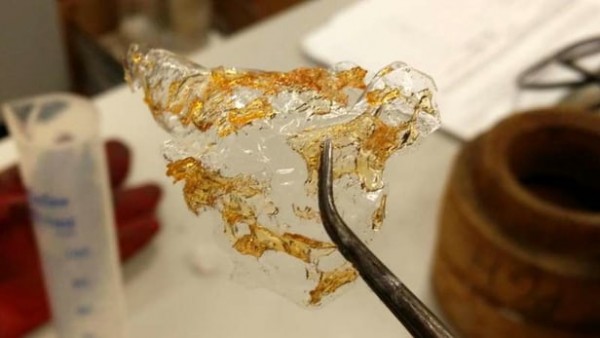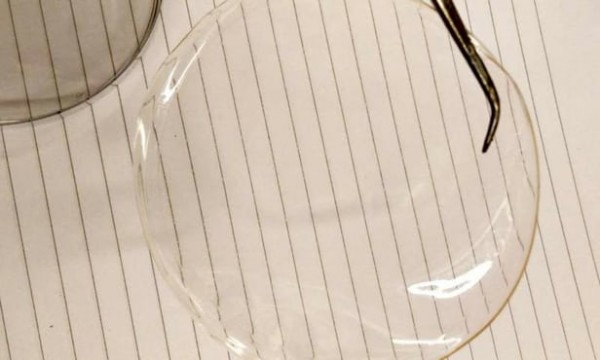据外媒报道,近日由诺丁汉大学及埃及尼罗河大学研究人员组成的一个生物工程团队正在使用虾壳中的材料来制作一种新型塑料袋,有望代替常见的塑料购物袋。 所有不可降解的塑料袋都来自于化石燃料,而这种新型的塑料袋不仅更加环保,还能延长食品的保质期。
塑料购物袋可能非常方便,但它们也成为了令埃及等国家头痛的环保问题。这些塑料袋不仅污染水源,同时环保部门不得不采取措施处理这些白色污染。为了帮助解决这个问题,研究小组正在研究壳聚糖(Chitosan),这是一种从废弃的虾壳中制取的人造聚合物。

这项研究的目的在于生产出适合于埃及环境的一种生物聚合物纳米复合材料,能够取代制成塑料购物袋中的聚乙烯。 这种可生物降解的材料造价也非常便宜。 通过盐酸浸泡虾壳脱去碳酸盐,再通过碱溶液进行碱煮脱去蛋白质和脂类物质,然后再洗涤至中性,使用KMnO4溶液或者H2O2溶液脱色,最后干燥就可以得到壳聚糖。利用常规的制造方法就能将壳聚糖薄片加工成塑料薄膜。

壳聚糖已经在食品包装盒医疗工业中得到应用,这种材料还具有抗菌性能,并能延长食品的保质期。
诺丁汉工程学院的Nicola Everitt博士表示:“使用由虾壳制成的可降解生物聚合物来制成塑料袋,不仅可以降低碳排放,还能减少在街道或非法倾倒场所积累的食物和包装垃圾。”
以上内容转自:CNBETA,仅供参考。
英文原文介绍如下:
Bioengineers at The University of Nottingham are trialling how to use shrimp shells to make biodegradable shopping bags, as a ‘green’ alternative to oil-based plastic, and as a new food packaging material to extend product shelf life.
The new material for these affordable ‘eco-friendly’ bags is being optimised for Egyptian conditions, as effective waste management is one of the country’s biggest challenges.
An expert in testing the properties of materials, Dr Nicola Everitt from the Faculty of Engineering at Nottingham, is leading the research together with academics at Nile University in Egypt.
Click here for full story
“Non-degradable plastic packaging is causing environmental and public health problems in Egypt, including contamination of water supplies which particularly affects living conditions of the poor,” explains Dr Everitt.
Natural biopolymer products made from plant materials are a ‘green’ alternative growing in popularity, but with competition for land with food crops, it is not a viable solution in Egypt.
Turning the problem into the solution
This new project aims to turn shrimp shells, which are a part of the country’s waste problem into part of the solution.
Dr Everitt said: “Use of a degradable biopolymer made of prawn shells for carrier bags would lead to lower carbon emissions and reduce food and packaging waste accumulating in the streets or at illegal dump sites. It could also make exports more acceptable to a foreign market within a 10-15-year time frame. All priorities at a national level in Egypt.”
Degradable nanocomposite material
The research is being undertaken to produce an innovative biopolymer nanocomposite material which is degradable, affordable and suitable for shopping bags and food packaging.
Chitosan is a man-made polymer derived from the organic compound chitin, which is extracted from shrimp shells, first using acid (to remove the calcium carbonate “backbone” of the crustacean shell) and then alkali (to produce the long molecular chains which make up the biopolymer).
The dried chitosan flakes can then be dissolved into solution and polymer film made by conventional processing techniques.
Chitosan was chosen because it is a promising biodegradable polymer already used in pharmaceutical packaging due to its antimicrobial, antibacterial and biocompatible properties. The second strand of the project is to develop an active polymer film that absorbs oxygen.
Enhancing food shelf life and cutting food waste
This future generation food packaging could have the ability to enhance food shelf life with high efficiency and low energy consumption, making a positive impact on food wastage in many countries.
If successful, Dr Everitt plans to approach UK packaging manufacturers with the product.
Additionally, the research aims to identify a production route by which these degradable biopolymer materials for shopping bags and food packaging could be manufactured.
Tackling community issues through innovation
The project is sponsored by the Newton Fund and the Newton-Mosharafa Fund grant and is one of 13 Newton-funded collaborations for The University of Nottingham.
The collaborations, which are designed to tackle community issues through science and innovation, with links formed with countries such as Brazil, Egypt, Philippines and Indonesia.
Since the Newton Fund was established in 2014, the University has been awarded a total of £4.5m in funding. It also boasts the highest number of institutional-led collaborations.
Professor Nick Miles Pro-Vice-Chancellor for Global Engagement said: “The University of Nottingham has a long and established record in global collaboration and research.
The Newton Fund plays to these strengths and enables us to work with institutions around the world to solve some of the most pressing issues facing communities.”
From a total of 68 universities, The University of Nottingham has emerged as the top awardee of British Council Newton Fund Institutional Links grants (13) and is joint top awardee from a total of 160 institutions competing for British Council Newton Fund Researcher Links Workshop awards (6).
Professor Miles added: “This is testament to the incredible research taking place across the University – both here in the UK and in the campuses in Malaysia and China – and underlines the stre
FROM:https://live-uon.cloud.contensis.com/news/pressreleases/2016/december/surf-and-earth-how-prawn-shopping-bags-could-save-the-planet.aspx